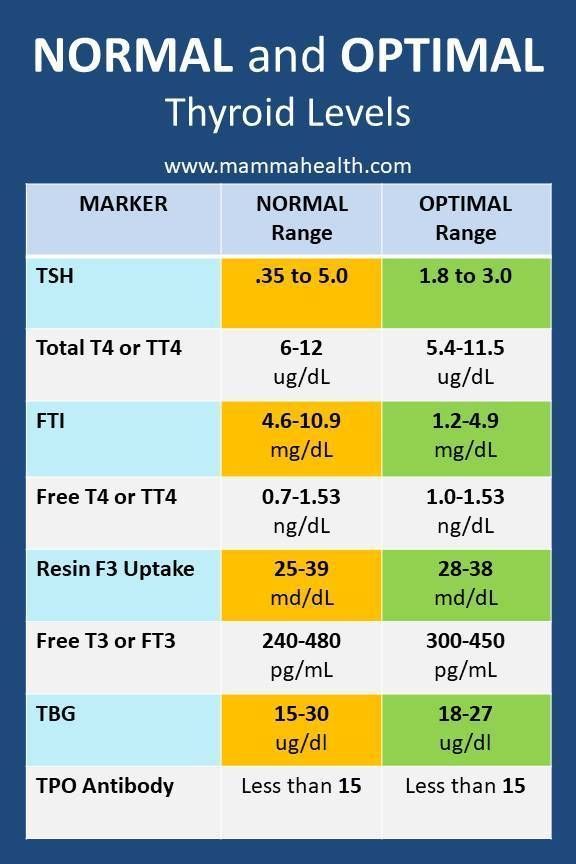There are many common misconceptions about the TSH level of adult patients, with some even stating that it is abnormal. While the correct level can still be present, there are other factors that can affect it such as your genetic background and the overall health of your thyroid gland.
With that being said, you may not have to worry about the levels of TSH in adult patients
The normal range of the TSH levels in adult patients is in the range of 0.4 to 5.2 mIU/ml (million international units per liter). Some research indicates that this normal range should be around 0.6 to 1.2 mIU/ml. This may depend on your gender and age. The most common causes for this are either thyroid problems at an early age, or the age of the patient is high enough that their body does not produce enough thyroid hormones for them to maintain healthy levels.
If you are experiencing any symptoms that seem too strange to be related to a thyroid problem then you should consult your doctor immediately. This will help determine what type of condition or issue that your body is dealing with. Once the cause of your symptoms is determined, your doctor will be able to prescribe the right medication for you to deal with the problem.
Thyroid problems in children are rare, although if your child has been diagnosed with hypothyroidism (thyroid disease where there is too little of the hormone thyroxine in the blood) then this is a definite concern. Thyroid hormones play a large role in regulating metabolism and the levels in your body need to be monitored closely in order to avoid any serious issues. If the thyroid levels are too low, then certain metabolic functions can be affected such as appetite and weight gain.
In addition to a thyroid issue, hypothyroidism can also lead to other conditions such as hypocalcemia and bone disease. Since hypothyroidism can affect your growth and other bodily processes, it is important to monitor your levels on a regular basis. A normal thyroid level is a number that ranges between two and twelve over normal.
Hypothyroidism, also known as Hashimoto's Thyroidism, occurs when the thyroid gland produces too much TSH. orothyroidism is when the thyroid gland produces too little T. and go through an overproduction of it, leading to hyperthyroidism. This can cause a number of issues including: muscle weakness, weight gain, poor bone health, decreased energy and an increased risk of osteoporosis.

These issues can be difficult to treat if the cause of the problem is left untreated, so many doctors prescribe medications in order to combat these issues. Medications that are used for treating these issues include: lithium carbonate, thyroxine, levothyroxine, hydrochloroquine and goserelin. Each medication comes with different side effects and can cause different problems for some patients, so it is best to talk with your doctor to discuss what each medication offers and how it may affect you.
It is always a good idea to talk to your doctor about your symptoms before starting a new treatment
You may be able to help your doctor find a better solution to your problem, or you may just have to keep taking the same medications your doctor prescribed until the problem is resolved. If you think you have too low thyroid levels, see your doctor right away to rule out other possible causes of hypothyroidism or thyroid disease.
There are several ways to control thyroid levels, including:
- Taking supplements, eating a balanced diet, getting enough sleep, exercising, and eating healthy foods.
- When thyroid levels are not working properly, your body is unable to regulate the amount of testosterone and estrogen in the bloodstream.
- Due to this imbalance, your thyroid gland cannot produce enough hormones, which leads to a build-up of these substances in the body.
Problems with these hormones can also lead to a build-up of toxins in the body, which can lead to loss of energy and function at lower levels than usual. Your body will also be more susceptible to infections and other diseases. When the liver is not functioning properly, it cannot remove all of the toxins it produces and therefore can produce toxic buildups that lead to all sorts of problems in the body.
If you have high TSH levels, you should take steps to lower or even eliminate them entirely by using supplements Sativum Complex, such as thyroid stimulants, which can be found without a prescription or prescribed by your doctor. If you have low TSH levels, there are several things you can do to control them. Talk to your doctor about your symptoms and seek proper treatment to help you become healthier and happier.

